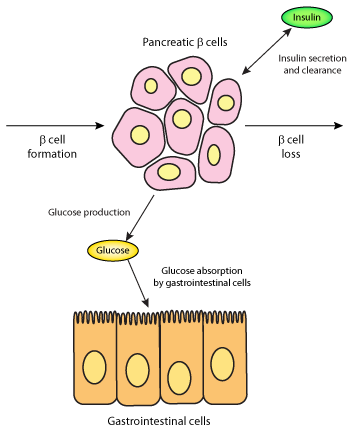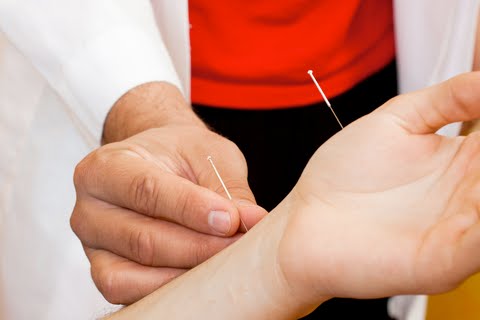With more than 25.8 million people in the U.S. affected by diabetes mellitus, often referred to as “diabetes” – a group of metabolic diseases affecting the body’s ability to effectively utilize blood glucose, commonly called blood sugar. Vital to one’s health, glucose is an important source of energy for the body’s cells comprising muscles and tissues. The pancreas, an internal gland in the body, is responsible for the production of insulin – the hormone needed for the proper metabolism of glucose.
If diagnosed with diabetes, no matter what type, it simply means that one has too much glucose in the blood, although the reasons may differ. If untreated, too much glucose can lead to serious health issues, thus imperative for one to seek medical attention if diagnosed.

Chronic diabetes conditions comprise of Type 1 diabetes and Type 2 diabetes. Potentially reversible are prediabetes – when blood glucose levels are higher than normal, though not enough to be classified as diabetes and gestational diabetes – condition occurring during pregnancy which might resolve after the birth of the baby.
Type 1 diabetes is an autoimmune disorder. The body’s immune system attacks the patient’s pancreas. The Beta cells of the pancreas, responsible for the insulin production, are damaged by the misguided immune system, rendering the body unable to produce insulin. Type 1 diabetes patients therefore must administer insulin daily. Most commonly diagnosed in children and young adults, this type of diabetes can occasionally appear in older patients as well.
Type 2 diabetes is the most common form of diabetes. Associated with older age, obesity and physical inactivity, in this type of diabetes, the body’s cells become resistant to the action of insulin, a process called insulin resistance. In addition to the problems with insulin resistance, the release of insulin by the actual pancreas may also be defective and subnormal. In fact, there is a known steady decline in beta cell production of insulin in type 2 diabetes, a major contributing factor for many patients with type 2 diabetes, who ultimately require insulin therapy.
 Gestational diabetes can occur temporarily during pregnancy, and it is reported that it occurs in 2% to 10% of all pregnancies. Doctors propose that it is the hormonal changes, which occur during pregnancy that lead to the elevation of blood sugar and inform that is usually resolved once the baby is born. However, it should be noted that 35% to 60% of women with gestational diabetes will eventually develop type 2 diabetes within the following two decades, especially those who require insulin during pregnancy and those who remain overweight after their delivery.
Gestational diabetes can occur temporarily during pregnancy, and it is reported that it occurs in 2% to 10% of all pregnancies. Doctors propose that it is the hormonal changes, which occur during pregnancy that lead to the elevation of blood sugar and inform that is usually resolved once the baby is born. However, it should be noted that 35% to 60% of women with gestational diabetes will eventually develop type 2 diabetes within the following two decades, especially those who require insulin during pregnancy and those who remain overweight after their delivery.
The initial symptoms of untreated diabetes are related to elevated concentration of blood sugar and loss of glucose in the urine. The large quantities of glucose in the urine can cause increased urine output and lead to dehydration. Dehydration causes increases thirst and water consumption. Therefore, excessive thirst (polydipsia) and excessive urination (polyuria) are within the earliest of symptoms. Furthermore, with insulin being an anabolic hormone, one that encourages storage of fat and protein, its inability to perform normally and/or deficiency eventually leads to weight loss despite an increase in appetite.
If the blood glucose levels are uncontrolled, one can see the complications that might occur and how the quality of life might be compromised. Diabetes has been associated to have an impact on almost every part of the human body; making it a priority that one gets tested regularly.
 In the classical Chinese books, diabetes is known as Wasting-Thirst Syndrome. According to these texts, the main causes for diabetes are the consumption of sweets and fatty foods. Traditional Chinese Medicine offers a way to help eliminate the symptoms associated with diabetes and reduce the need of insulin. The interview and physical exam help the T.C.M. practitioner create a treatment plan unique for every patient with diabetes, comprising of acupuncture, herbs, diet and regular exercise. Acupuncture can help restore the hormonal balance, regulate energy and manage sleep. Herbal therapy is an essential component to the treatment of diabetes. Commonly used Chinese herbal formulas are Liu Wei Di Huang and Da Bu Yin Wan, both comprising of ginseng. Coincidentally, researchers at St. Michael’s Hospital and University of Toronto have found that consuming American ginseng before a meal reduces blood sugar in people with and without diabetes.
In the classical Chinese books, diabetes is known as Wasting-Thirst Syndrome. According to these texts, the main causes for diabetes are the consumption of sweets and fatty foods. Traditional Chinese Medicine offers a way to help eliminate the symptoms associated with diabetes and reduce the need of insulin. The interview and physical exam help the T.C.M. practitioner create a treatment plan unique for every patient with diabetes, comprising of acupuncture, herbs, diet and regular exercise. Acupuncture can help restore the hormonal balance, regulate energy and manage sleep. Herbal therapy is an essential component to the treatment of diabetes. Commonly used Chinese herbal formulas are Liu Wei Di Huang and Da Bu Yin Wan, both comprising of ginseng. Coincidentally, researchers at St. Michael’s Hospital and University of Toronto have found that consuming American ginseng before a meal reduces blood sugar in people with and without diabetes.
Patients with diabetes can greatly benefit from the integration of Eastern and Western medicine. Though Western medicine is irreplaceable when it comes to life-threatening conditions, Eastern medicine can increase the quality of life by providing relief for the symptoms associated with the condition.






